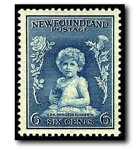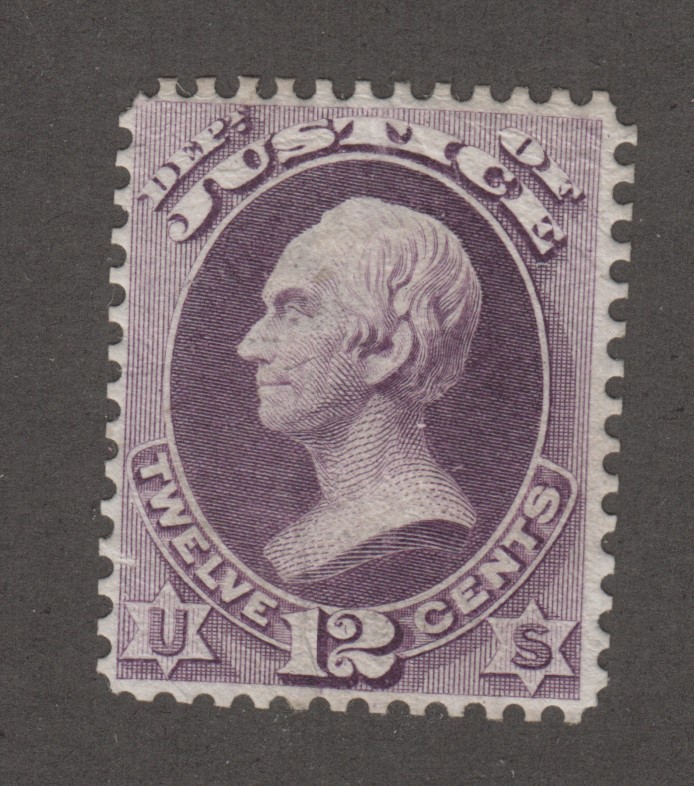
Discussion - Member to Member Sales - Research Center

Discussion - Member to Member Sales - Research Center


1. Regular issue with 11 perforation (996,000 printed)

2. "G NSW" perfin (unknown printing)

3. Plate Proof with 13½ x 12½ perforation (120 were printed but never issued)
The new info is about the mint unhinged "G NSW" perfin.
An entry in the APF (Australian Philatelic Federation), November 2018. Vol. 32 No.3.
Written by Peter Simpfendorfer, Life Member of the Wagga Stamp Inc., titled "An Introduction to Perfins, he stated that although there are many private punctures he will be specifically focusing on the government perfins, he does however add two paragraphs relating to private punctures.
This post however will focus on the 1/- 1935 government perfin; here is what it says about unused government perfins (excerpt), and I thought I knew everything about this stamp, there is always something new around the corner.
STATE PERFINS (OTHER THAN OS) POST FEDERATION:
Whilst this display does not include perfins on stamps issued by the various Australian states, bear in mind that state stamps were valid for postage until the introduction of decimalisation in 1966.
The Australian states used perfin stamps as follows:
New South Wales, pattern "G NSW" 1933-1978
South Australia, pattern "SA" 1903-1912
Queensland, apparently continued to use OS issues
Tasmania, pattern "T" 1902-1977
Victoria,pattern "VG" 1933-1989
Western Australia pattern "WA" 1903-1915 and W 1933-1954
Now for the shocker.
There is strong argument that mint unhinged copies of the perfins in this section may have been pilfered.

Login to Like
this post
Hi Rob
You have done it again
Just when it was safe to go back into the water, you have yelled "shark"
It just proves that nothing is finite, and there is a lot more to be found.
I am still looking for the missing British Guiana Magenta.
There were two, but, Hind destroyed the other, to make his unique, so somewhere------
Regards
Horamakhet

Login to Like
this post
Surely there can't be any surprise re the stamps being pilfered?
MUH Government perfins shouldn't, in theory, exist. Those that weren't used, and were surplus to requirements, should have been destroyed. I always view MUH Government perfins as stolen goods!

Login to Like
this post
Hi Horamakhet
I cannot say how many were “gifted” by employees but to those involved I would assume not too many so to avoid being detected when the stocks of stamps are audited, and if questioned on the missing stamps they can be explained away. But then, we are talking about Government efficiency, so the amount stolen by employees is unknown, they are scarce though in this condition.
Arthur Hind bought it during a series of fourteen auctions in 1922 for over $36,000 (reportedly outbidding three kings, including George V); on 6 April 1922. Originally It was discovered in 1873 by a 12-year-old Scottish schoolboy, Louis Vernon Vaughan, in the Guyanese county of Demerara (whose postmark the stamp bears), amongst his uncle's letters. There was no record of it in his stamp catalogue, so he sold it some weeks later for six shillings, which was a huge some for anyone back in 1873.
At the moment there is now two known, mine is believe to be in a much better condition, and the only one publically noted for inclusion in the ACSC (so the stamp you will see in the catalogue will be mine).
Of course this stamp will have stamp enthusiasts looking through their collections. Dr. Geoff Kellow said to me last night that the stamp (the block of 4 1938 ½d kangaroo showing a very early crack plate) will definitely be in the catalogue, thus authenticating what it was suspected to be.
Now that it is confirmed, it may not have the price tag of the 1c Guyana magenta, but it will be valued handsomely (have no idea how much it will be in the catalogue, but I’m sure being one of 2 will give it a value befitting it’s rarity).
He also said that the cracked plate should never have existed but it does and he has made it a passionate project to find out why it exists, and of course what he does find out I will get a copy of the provenance.

Login to Like
this post
Hi Dave
It didn’t dawn on me, though I do have “ex-pilfered” stamps from the Note Printing Branch theft of the 1940s, these stamps being well documented. I should have realised that it would have been common practice to destroy any unused state government punctured postage stamps when they were no longer needed and any MUH copies in private collections and on the market would have been the result of a "personal gift upon oneself".
The information only made the scarce stamp more interesting.
Rob

Login to Like
this post
Member ACCC (Australian Commonwealth Collectors Club of NSW)
18 Feb 2019
12:38:40pm
There are three types of the 1935 1/- ANZACs.

1. Regular issue with 11 perforation (996,000 printed)

2. "G NSW" perfin (unknown printing)

3. Plate Proof with 13½ x 12½ perforation (120 were printed but never issued)
The new info is about the mint unhinged "G NSW" perfin.
An entry in the APF (Australian Philatelic Federation), November 2018. Vol. 32 No.3.
Written by Peter Simpfendorfer, Life Member of the Wagga Stamp Inc., titled "An Introduction to Perfins, he stated that although there are many private punctures he will be specifically focusing on the government perfins, he does however add two paragraphs relating to private punctures.
This post however will focus on the 1/- 1935 government perfin; here is what it says about unused government perfins (excerpt), and I thought I knew everything about this stamp, there is always something new around the corner.
STATE PERFINS (OTHER THAN OS) POST FEDERATION:
Whilst this display does not include perfins on stamps issued by the various Australian states, bear in mind that state stamps were valid for postage until the introduction of decimalisation in 1966.
The Australian states used perfin stamps as follows:
New South Wales, pattern "G NSW" 1933-1978
South Australia, pattern "SA" 1903-1912
Queensland, apparently continued to use OS issues
Tasmania, pattern "T" 1902-1977
Victoria,pattern "VG" 1933-1989
Western Australia pattern "WA" 1903-1915 and W 1933-1954
Now for the shocker.
There is strong argument that mint unhinged copies of the perfins in this section may have been pilfered.

Login to Like
this post

re: New information on the 1935 ANZAC 1/- Commemorative
Hi Rob
You have done it again
Just when it was safe to go back into the water, you have yelled "shark"
It just proves that nothing is finite, and there is a lot more to be found.
I am still looking for the missing British Guiana Magenta.
There were two, but, Hind destroyed the other, to make his unique, so somewhere------
Regards
Horamakhet

Login to Like
this post

re: New information on the 1935 ANZAC 1/- Commemorative
Surely there can't be any surprise re the stamps being pilfered?
MUH Government perfins shouldn't, in theory, exist. Those that weren't used, and were surplus to requirements, should have been destroyed. I always view MUH Government perfins as stolen goods!

Login to Like
this post
Member ACCC (Australian Commonwealth Collectors Club of NSW)
19 Feb 2019
12:58:04am
re: New information on the 1935 ANZAC 1/- Commemorative
Hi Horamakhet
I cannot say how many were “gifted” by employees but to those involved I would assume not too many so to avoid being detected when the stocks of stamps are audited, and if questioned on the missing stamps they can be explained away. But then, we are talking about Government efficiency, so the amount stolen by employees is unknown, they are scarce though in this condition.
Arthur Hind bought it during a series of fourteen auctions in 1922 for over $36,000 (reportedly outbidding three kings, including George V); on 6 April 1922. Originally It was discovered in 1873 by a 12-year-old Scottish schoolboy, Louis Vernon Vaughan, in the Guyanese county of Demerara (whose postmark the stamp bears), amongst his uncle's letters. There was no record of it in his stamp catalogue, so he sold it some weeks later for six shillings, which was a huge some for anyone back in 1873.
At the moment there is now two known, mine is believe to be in a much better condition, and the only one publically noted for inclusion in the ACSC (so the stamp you will see in the catalogue will be mine).
Of course this stamp will have stamp enthusiasts looking through their collections. Dr. Geoff Kellow said to me last night that the stamp (the block of 4 1938 ½d kangaroo showing a very early crack plate) will definitely be in the catalogue, thus authenticating what it was suspected to be.
Now that it is confirmed, it may not have the price tag of the 1c Guyana magenta, but it will be valued handsomely (have no idea how much it will be in the catalogue, but I’m sure being one of 2 will give it a value befitting it’s rarity).
He also said that the cracked plate should never have existed but it does and he has made it a passionate project to find out why it exists, and of course what he does find out I will get a copy of the provenance.

Login to Like
this post
Member ACCC (Australian Commonwealth Collectors Club of NSW)
19 Feb 2019
01:08:58am
re: New information on the 1935 ANZAC 1/- Commemorative
Hi Dave
It didn’t dawn on me, though I do have “ex-pilfered” stamps from the Note Printing Branch theft of the 1940s, these stamps being well documented. I should have realised that it would have been common practice to destroy any unused state government punctured postage stamps when they were no longer needed and any MUH copies in private collections and on the market would have been the result of a "personal gift upon oneself".
The information only made the scarce stamp more interesting.
Rob

Login to Like
this post


